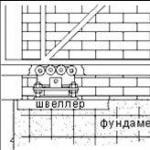Starting to study speech etiquette, it is necessary to determine its place in etiquette as such, to understand the relationship between the concepts of "etiquette" - "regulations" - "protocol", in the specifics and a brief history of their constituent parts.
Etiquette by origin french word(etiguette) Initially, it denoted a product tag, label (cf. label), and then they began to call it that court ceremonial. It is in this sense, especially after the adoption of the French ceremonial at the Vienna court, that the word etiquette spread in German, Polish, Russian and other languages. Nowadays etiquette means courtesy and courtesy rules accepted in a particular society.
Along with this word for aggregates adopted rules defining order any activity, words are used regulation and protocol. Let's look at the nuances of their meanings.
According to the Big encyclopedic dictionary, word regulations (French reglement - from regle - rule) means: 1) a set of rules that determine the procedure for activities government agency, institutions, organizations. 2) The procedure for conducting meetings, conferences, congresses. 3) The title of certain acts of international congresses and conferences (for example, the Vienna Regulations of 1815).
Word protocol (from the Greek protókollon - the first sheet glued to the scroll of the manuscript; protos - the first and kolla - to glue) has a long history, it is the result of communication between people different countries and nationalities for many centuries, so the concept of protocol is a historical category.
The norms of diplomatic protocol should be considered fundamental in the history of modern protocol. phrase diplomatic (state) protocol denotes a set of common accepted rules, traditions and conventions that govern international and governmental communication. Communication between governments, departments of foreign affairs, diplomatic missions, and officials is subject to the protocol norm. Protocol events are meetings and seeing off guests, negotiations, presentations, receptions, congratulations, mourning ceremonies, presentation of state awards, etc.
The basis and essence of the protocol is an expression of deep respect towards the distinguished guest, the country and the people he represents. The rules of diplomatic protocol are based on the so-called principle of "international comity" - a set of rules of etiquette, respect and respect generally accepted in international practice, observed in interstate relations. A breach of international comity, especially a deliberate one, is seen as damaging the prestige and authority of the state.
The famous French diplomat Jules Cambon writes: “The rules of protocol seem somewhat old-fashioned at the present time, but not observing them is as stupid as not taking off your hat when entering a church or shoes when entering a mosque ... In fact, not everything is so bad in these solemn trifles. With its solemnity, the protocol gives greater value events, ceremonies and signed documents and causes them greater respect.
Protocol norms are also observed in relations between businessmen, including between partners from different countries. it business protocol - rules for organizing various events in the implementation of business contacts.
What is the relationship between protocol and etiquette? They are interconnected: for example, one of the organic constituent parts diplomatic protocol is diplomatic etiquette. If the diplomatic protocol is “an expression of good manners in relations between states”, then diplomatic etiquette is a manifestation of good manners in relations between officials, political and public figures representing their state. Accordingly, in the business protocol, which has absorbed the rules for organizing business events and contacts, integral part includes business etiquette, which dictates the rules of politeness in the communication of business people.
Protocol and etiquette require knowledge of politics and geography, economics and culture, national and religious traditions of various states, close attention to the smallest details, behind which are centuries-old traditions and experience of peoples. It should always be remembered that in the protocol, as in etiquette, there are no trifles, all the constituent details are important: behavior, manners, gestures, voice, tone, appearance and others. According to the American millionaire, businessman and writer Harvey McKay, "the little things are not decisive, the little things decide everything."
It should also be borne in mind that the rules of etiquette in each country have quite significant features, which are due to historical, national, religious and other traditions, although they are basically generally accepted for all countries of the world. Unlike etiquette, the rules of the protocol are international, therefore, universal (although, of course, the protocol of each country has its own nuances). Etiquette and protocol are one of the main components of the formation of the image of any business person, civil servant, as well as commercial or state organization and play a very important role in the successful conduct of business, including international.
There are several types of etiquette: court, military, diplomatic, secular and business.
Business Etiquette- this is established rules of conduct in the field of business and business contacts . Business etiquette is a kind of secular etiquette, but based on military etiquette. Main difference business etiquette from secular - more rigid regulation and priority of subordination over gender differences of employees and their age.
Most of the rules of general civil, business and diplomatic etiquette are identical, but among officials, the rules of diplomatic and business etiquette are observed more strictly, since their violation damages the reputation of the state or institution. The rules of etiquette take into account in communication between people their status and position, gender and age. The hierarchy of principles of etiquette is as follows:
1. Status (position, rank).
2. Age and gender (in case of a small difference in the age of people, representatives of the weaker sex take advantage, but if the difference is large and we are talking about communication between a young girl and an elderly man, then the man has the advantage).
Business conversation specific and lies in the fact that the collision, the interaction of economic interests and social regulation is carried out within the legal framework. Most often, people enter into business relations in order to legally formalize interaction in a particular area. Perfect result interaction and legal registration of relations become partner relationships built on the foundations of mutual respect and trust.
The central principle of speech behavior in business communication is the principle of cooperation, which is realized according to the theory of G.P. Grice in seven maxims (principles of behavior): the maxim of tact; maxim of generosity; the maxim of the relevance of the statement; maxim of completeness of information; maxim of sympathy; maxim of consent; maxim of modesty. Not all of these maxims can be realized in one speech act: it is not always necessary to agree with the interlocutor, show him sympathy, but be tactful, correct, respect the interlocutor's right to receive accurate and complete information and a leader of any rank must express it for his part.
Another principle of modern business communication is that. that initially communication is based on the definition of the interlocutor as a partner, an equal participant in the dialogue, regardless of his social position and his communicative position. Along with a business request: Bring me papers", - today the expression is preferable:" Please, grab a folder with documents”, - from the side of the leader in relation to the subordinate.
Psychology of a business person programmed for a communication partner who inspires confidence in the way he is dressed, combed, whether he is punctual, etc. Then other parameters are already assessed - loyalty to one's obligations, honesty, qualifications, ability to negotiate, etc.
Consequently, first what needs to be done is to carry out activities for the education and self-education of a business person who needs to properly assimilate the code of conduct adopted for good educated people In all countries. This code includes four basic rules: politeness; naturalness; dignity; tact.
Politeness involves, first of all, a greeting. Forms of greetings in different countries are different. But with all the variety of greetings, international etiquette is basically the same: when people meet, they wish each other good and prosperity, success in work, good morning, afternoon and evening. Therefore, the following etiquette rules regarding greetings should be followed:
1) it is necessary to say hello regardless of the relationship people are in, whether they sympathize with each other or not;
2) the first to greet the incoming;
3) it is not necessary to shake hands, and if several people work in the room, then it is not necessary.
Violation of etiquette are noisy, unrestrained greetings. A simple gesture, a slight smile express respect and respect.
In business etiquette, privileges in the exchange of greetings are given to a person of a higher status (position), and only with equal statuses do gender and age privileges come into play (i.e., the subordinate first greets the leader, and the person of a lower status greets the carrier of the higher regardless by gender and age). And only a personal decision and upbringing will dictate the leader to be the first to greet a woman or a senior subordinate. If this did not happen, the subordinates have no right to be offended.
1) when you come to work, you need to greet your colleagues. Let them know that they are happy to start a new working day with them, that they can count on your help and support. A smile and a morning greeting is a strong stimulus for good mood;
2) you need to learn how to manage your behavior in any conditions. Be friendly and polite, smile at people. Strive to maintain a good mood both in yourself and in those around you. Politeness, friendliness, benevolence are equally needed at all levels when communicating with a leader, with a subordinate, with superiors;
3) the manner of communication between colleagues depends on the state interpersonal relationships . The pronoun "You" is not only an expression of the culture of communication, but also a way to maintain a working distance; appeal to subordinates on "you" - essential tool maintaining normal service relations and labor discipline;
4) order and request. The form of the order in modern corporate culture is becoming obsolete and fully applies only to written business documents. All instructions are expressed in the form of a business request, the objectivity and obligation of which is justified by the current business situation (the difference between an order and a business request will be discussed ahead);
5) give thanks, but also exact. It is necessary to use incentives more often and skillfully. At the same time, it is necessary to remember the rules: “Screamed - lost, praised - won”, “Praise in public - scold in private”. It should be remembered that when choosing forms of expression and punishment, the age, gender and temperament of workers are taken into account;
6) defend your point of view before making a decision. In a dispute, it is necessary to do everything acceptable in order to convince other performers that you are right. But once a decision is made, one must consider it as one's own;
7) create a mood for success. By infecting your partners with your faith in the success, you create a situation of confidence in the success of the firm (organization) among the clients that are served. It is necessary to try to create a lively, optimistic atmosphere around you. The combination of realism and optimism is the key to achieving results various kinds activities;
8) you need to do everything on time, be punctual, enter appointments in your calendar. Being late not only interferes with work, but is also the first sign that a person cannot be relied upon. It is important to know that it is not recommended to come to work before your supervisor and leave later. The “on time” principle also applies to reports and any other tasks assigned to you. It is recommended, for example, to add an extra 25% for the period required to complete this work, then you will surely meet the allotted time;
9) obligatory keeping of secrets and secrets of the institution. All company secrets must be kept to yourself. Do not criticize the firm, especially in front of strangers. Never retell to anyone what you sometimes hear from a colleague, manager or subordinate about their personal life;
10) it is necessary to speak and write in a competent and intelligible language. One who can clearly express his thoughts has a great advantage. The inability to write and speak properly often throws a person back, and his abilities may go to waste;
11) Keeping promises made to superiors, clients, employees, and oneself. If a person fulfills his promise on time, then this characterizes him as a disciplined and obligatory person.
12) It is necessary to be very careful when accepting gifts that cannot be called purely symbolic;
13) Dress appropriately. On the one hand, your suit should be businesslike, on the other hand, you should not look like a black sheep against the background of your colleagues and, within the framework of business style, adhere to in your choice of the form of clothing that is accepted in the organization where you work.
The rules of etiquette, including business etiquette, must firmly enter the daily life of every person, become his inner need. The requirements of etiquette require the observance of the rules of good taste in all cases of life, regardless of our mood and psychological state. Knowledge of the rules of etiquette, their observance allows a person to feel confident and at ease, not to feel embarrassed in front of others due to mistakes and actions that do not correspond to the situation of communication. The implementation of these rules will allow you to achieve success in work and in relationships with colleagues.
Larina F.Sh., post-graduate student of the Department of International and European Law, Kazan State University.
The existence and development of the state as a subject of international law and international relations cannot take place without external relations with other subjects of international law. The need for external relations requires the organization of the apparatus for the implementation of these relations and the regulation of these relations by international law.
A number of Western authors (for example, the French lawyer Dupuy<1>, English lawyers Corbett<2>, Schwarzenberger<3>, American Morgenthau<4>) believed that diplomacy operates within the limits of international law, but can go beyond these limits and break them when it is beneficial.
<1>Dupuis Ch. Coucs de la Haye. P., 1924. Vol. 1. P. 304.
<2>Corbett P. Law in Diplomacy. Princeton, 1959. P. 272.
<3>Schwarzenberger G. A manual of International law. L., 1952. P. 4.
<4>Morgentahu H. Politics in the XXth Century. Chicago, 1962. V. III.
Such an understanding of the relationship between diplomacy and international law means justifying the arbitrariness of the subject of international law in international relations and does not correspond to modern principles of international communication, requiring compliance with the norms of international law. Diplomatic activity is defined by the framework of international law and is regulated by the norms of international law.
It is impossible to solve universal global problems by the forces of one state or a group of states. Thus, due to the greater complexity and specialization of international relations, the content of diplomatic activity, diplomacy is also changing, which leads to the emergence of new links in the diplomatic service, a further change in the content of the concept of diplomacy and diplomatic service, which, in addition to diplomatic, consular, and commercial activities, covers interstate relations in the field of culture, foreign economic, information and printing activities<5>.
<5>Ushakov N.A. International law. M.: Jurist, 2000. S. 205.
In 1961, the Vienna Convention on Diplomatic Relations was adopted in the Austrian capital<6>, the norms of which are guided to this day by all members of the international community.
<6>
There is no doubt about how great the role of ambassadors is in the successful functioning of diplomatic missions in the above areas.
It is not difficult to imagine, and this is evidenced by the experience of the past, that normal communication between states would be unthinkable if all of them did not adhere to the general fundamental principles of relations, and first of all, such as respect for sovereignty, equality, territorial integrity, non-interference in the internal affairs of each other. friend<7>.
<7>Wood J., Serre J. Diplomatic Protocol and Ceremonial. M.: International relations, 2003. S. 29.
A tool is needed to enable States to put these principles into practice. Indeed, in what way and in what form can one state demonstrate its respect for another state as an equal partner? Other similar questions would inevitably arise if, in the course of the centuries-old history of international relations and diplomacy, such an instrument as a diplomatic protocol had not been formed.<8>.
<8>Borunkov A.F. Diplomatic protocol in Russia. M.: International relations, 2000. S. 15.
According to the generally accepted understanding, a diplomatic protocol is a set of rules, traditions and conventions observed by governments, departments of foreign affairs, diplomatic missions, and other officials in the process of international communication. The word "protocol" itself comes from the Greek protokollon (protos - the first and kollao - to glue), which in the Middle Ages meant the rules for processing documents, and then - and archiving. Over time, it began to apply to the rules of diplomatic activity. From here arose modern concept"diplomatic protocol". Its individual norms are called the ceremony of presenting credentials, meeting or seeing off an official delegation, etc. The rules of protocol are based on the principle of "international comity" (Latin comitas gentium), which means observance of respect and respect for everything that symbolizes the state.
We find a peculiar interpretation of the origin of the protocol in J. Cambon<9>: "It is possible that courtesy originates from fear. This was probably the case in relations between individuals and, probably, already in relations between nations. The biblical "Book of Kings" tells of the merciless revenge committed by David on the Moabites who offended him ambassadors, and when an Asiatic king, some Fariac or Antiochus, received the ambassadors of the Roman Senate, there was more fear than reverence in the numerous tokens of respect addressed to them. mission, custom became the rule. Thus the Protocol was born. It is a kind of religion, with peculiar rites and sacraments. The masters of ceremonies are its priests." And further: “Of course, the rules of the Protocol seem somewhat old-fashioned at the present time. If there are still people who treat them with a kind of reverence, then there are those who ridicule them. Both are wrong. Such is the property of customs: although they are criticized, they should be obeyed. Not to do this is as foolish as not taking off your hat when entering a church or shoes when entering a mosque."<10>.
<9>Kuzmin E.L. Diplomatic and business communication: the rules of the game. M.: Norma, 2005. S. 115.
<10>Cambon J. Diplomat. M., 1946. S. 52 - 53.
It can be said with certainty that it will hardly be possible to find any significant international action that would be realized without the use of the norms of diplomatic protocol and etiquette. With their strict observance, state visits are organized, including high-level meetings; diplomatic receptions and negotiations are held; international conferences are convened; contracts and agreements are signed; the behavior of diplomats in the host country, their clothes on official occasions, etc. are determined. Thus, the protocol is an international category, its main provisions must be observed more or less equally in all countries. States are strictly guided by the principle of "international comity", strive to follow general norms, often introducing them into acts of domestic legislation<11>.
<11>
So, the protocol must be strictly observed, but do it creatively, never become its slave. Yu.V. Dubinin recalls how difficult it was to fulfill Moscow's instructions during the meeting with US President R. Reagan in connection with the presentation of credentials by the ambassador. Individual conversation was not provided, and yet tough decision together with the chief of the American protocol was found. From fifth place in the queue of those who presented their credentials that day, the Soviet ambassador moved to ninth and ended up last in the list, getting the opportunity for a brief conversation with the head of state. Of course, several places were lost in the protocol seniority in the diplomatic corps, but this could not be compared with the ability to fulfill the important task of the center<12>. “Such a decision,” writes Yu.V. Dubinin, “of course, needed the approval of the President personally. This approval was quickly received, and I was able to appreciate the flexibility and pragmatism of the American protocol ...”<13>
<12>Kuzmin E.L. Decree. op. S. 103.
<13>Dubinin Yu.V. Time for Change: Notes from the Ambassador to the United States. M., 2003. S. 48.
The textbook example was when I.V. Stalin, breaking all protocol rules, personally arrived at the station to see off the Japanese Minister of Foreign Affairs after the signing on April 13, 1941 of the Soviet-Japanese pact on the neutrality of the Land of the Rising Sun in the war with Nazi Germany which was extremely important for our country at that moment.
Within the framework of generally accepted norms, some variations of the protocol are permissible, taking into account the state of relations between countries, the socio-economic system and ideology, national and religious characteristics and historical traditions. In India, for example, there is a beautiful custom to put on a wreath of flowers on an honored guest arriving in the country.<14>.
<14>Kuzmin E.L. Decree. op. S. 207.
Etiquette can and should be understood as an established order of behavior.
In diplomatic etiquette, the principle of respect, the principle of seniority, the principle of reciprocity and the principle of sovereignty are widely used. For example, "missing" courtesies or "missing" compliments amount to deliberate disrespect and may hinder international communication. It is important for diplomatic protocol to follow special rules even when seated in the car, which is not regulated by business etiquette.
Finally, in diplomatic practice over the years, a "language" of diplomatic etiquette has developed with its own terms (visa, agrement, accreditation, credentials, persona non grata)<15>.
<15>Sutyrin F.D. Etiquette and diplomatic protocol for all. St. Petersburg: September, 2001. S. 8.
The topic of key state symbols is inseparable from protocol issues: the coat of arms, the flag, the anthem. Giving the necessary honors to them, strict observance of the proper ritual is one of the most sensitive manifestations of international courtesy and respect for statehood.
When the flags of several states are displayed simultaneously, the sizes of the flags must be the same; no flag should be raised above the other. The place of honor is the far right, when viewed from the flag, or in the center of the flags; the most common practice is to place the flags in alphabetical order of the names of the states (in Latin or in the alphabet of the language of the country where the flags are flown); when two flags are crossed, the place of honor is the right side (when viewed from the flags); it is not allowed to hang the flags of several states on one flagpole<16>.
<16>Kuzmin E.L. Decree. op. S. 192.
The norms of diplomatic protocol are mainly based on the rules of international courtesy. There are no unified written or oral norms of international law that would oblige states to render strictly defined honors to the head of state during his official visit to the country. Each state follows its own rules for receiving foreign guests of various levels, guided by existing international practice, reciprocity, national traditions and customs of the people. The trends that are observed in international protocol practice are also taken into account: to make protocol rules simpler and more convenient<17>.
<17>Voznesenskaya L.O. Fundamentals of international communication. M.: Yurist, 1997. S. 46.
Unfortunately, in our country for a long time that side of business communication, which is represented by protocol and etiquette, was taught at best to diplomats and employees of foreign trade organizations going to work abroad. Other specialists rarely had the opportunity to receive at least general ideas about these "tricks". On the other side of business communication, related to the problems of psychology, the technology of conducting business conversations and negotiations, they did not pay attention at all, believing that there was nothing to teach here.<18>.
<18>Akulov T.Yu., Saveliev I.L., Talmanov A.L., Lokhanov P.N. Protocol in the Republic of Tatarstan. Kazan: Center for Innovative Technologies, 2004. P. 8.
The rules of international comity are non-binding. But, as international protocol practice testifies, states and diplomats strive to comply with them. International courtesy does not allow any offensive actions against other states, their representatives, state symbols.
As a result of great efforts and reasonable compromises, in 1961 the states succeeded in drawing up the Vienna Convention on Diplomatic Relations. All states of the world, including those that formally refrain from joining the Convention, comply with the norms fixed in it, and the protocol services take these norms into account in their practical work. In some states, the Vienna Convention has been incorporated into national legislation and has come to be regarded by them as a norm of national law. Other countries additionally chose to enact their own laws, taking into account the obligations arising from the provisions of the Vienna Convention<19>.
<19>Molochkov F.F. Diplomatic protocol and diplomatic practice. M.: Knowledge, 1979. S. 32.
Literature I. Legislation and other regulatory legal acts
- Vienna Convention on Diplomatic Relations 1961
II. Special literature
- Akulov T.Yu., Saveliev I.L., Talmanov A.L., Lokhanov P.N. Protocol in the Republic of Tatarstan. Kazan: Center for Innovative Technologies, 2004.
- Borunkov A.F. Diplomatic protocol in Russia. Moscow: International relations, 2000.
- Voznesenskaya L.O. Fundamentals of international communication. M.: Jurist, 1997.
- Wood J., Serre J. Diplomatic Protocol and Ceremonial. Moscow: International relations, 2003.
- Dubinin Yu.V. Time for Change: Notes from the Ambassador to the United States. M., 2003.
- Dupuis Ch. Coucs de la Haye. P., 1924. Vol. one.
- Cambon J. Diplomat. M., 1946.
- Corbett P. Law in Diplomacy. Princeton, 1959.
- Kuzmin E.L. Diplomatic and business communication: the rules of the game. M.: Norma, 2005.
- Molochkov F.F. Diplomatic protocol and diplomatic practice. Moscow: Knowledge, 1979.
- Morgentahu H. Politics in the XXth Century. Chicago, 1962.
- Sutyrin F.D. Etiquette and diplomatic protocol for all. St. Petersburg: September, 2001.
- Ushakov N.A. International law. M.: Jurist, 2000.
- Schwarzenberger G. A manual of International law. L., 1952.
What is etiquette and protocol?
This question is of interest to so many people who want to keep up with the times and, if not even know, then at least understand what these words mean. This resource is just devoted to a detailed disclosure of these terms and to help everyone who wants to know how to behave in a given situation.
Human life takes place in his constant interaction, communication with other people. To ensure that contacts do not lead to conflicts, do not violate social balance, so that everyday communication is harmonious, pleasant and useful, rules of etiquette have been developed since ancient times. What is etiquette?
ETIQUETTE is an established order, a set of rules governing external manifestations of human relations.
History of etiquette
The term "etiquette" appeared in the XVIII century. But the codes of practice were created back in Ancient Egypt: about 2350 BC e. A book was written here called "Instructions for Conduct." Great thinker Ancient China Confucius (Kung Tzu) (551-479 BC), the founder of the most influential of the ancient Chinese philosophical and religious movements - Confucianism - assigned etiquette (li) a special role. Li-etiquette, according to Confucius, was supposed to form harmonious relations between people, regulate human behavior in different life situations. The concept of "li-etiquette" is very close to the meaning of the modern European term "etiquette". Li-etiquette, in addition to many other things, is the norm of behavior in the family, the rules of relations between subjects and the sovereign.
Courtesy, "beautiful behavior" were highly valued in the ancient world. As Aristotle wrote, courtesy can be of three kinds: “The first kind is in address: for example, in how they address all they meet and greet them by stretching out their hand. The second is when they come to the aid of anyone in need. And finally, the third kind of courtesy - when they are hospitable feasters.
An example of courtesy was the behavior of Julius Caesar: “... when someone was served old butter instead of fresh at dinner and the rest of the guests refused it, he alone took it even more than usual, so as not to show that he reproaches the owner for negligence or impoliteness” .
Merchants, wealthy philistines tried to follow noble etiquette, and this often took on ridiculous, ugly forms.
The absurd manners of Parisian and London high society widened the gulf between the wealthy and the poor. The hatred of the exploited majority for the exploiting minority, the events of 1917 and the first post-revolutionary years led to the so-called etiquette nihilism. For the liquidation of the nobility and the bourgeoisie as social groups followed by the eradication of the norms of etiquette, which took forms no less ridiculous than many of the requirements of this etiquette. So, for example, in the 1920s, a handshake was declared a carrier of infection, and girls considered themselves insulted if they were given a coat.
Gradually, as the irreconcilable class struggle faded and the material well-being of our people improved, the classical norms of etiquette began to return to life.
In recent years, in connection with the formation of market relations, and hence the emergence of the class of the rich again, secular manners, knowledge of the elementary basics of etiquette, the subtleties of conversation, serving, correct placement at the dinner table and in cars, etc. But that's not the only thing.
Etiquette, free from extremes and outdated formalities, does not complicate, but simplifies and makes everyday life more pleasant. Its rules are based on such moral categories as politeness, tact, correctness, decency. Thus, mastering the rules of etiquette contributes to the development of a sense of tact (the ability to speak and act taking into account the individual psychological characteristics and mood of other people), teaches you to maintain your own dignity and respect others even in difficult, conflict situations.
Integrity is an integral part of etiquette. Etiquette helps a person to refrain from unseemly acts - such as petty cheating or theft, slander, slander.
Owning the rules of etiquette eliminates stiffness, allows you not to offend your business partner with an awkward word or action, and at the same time not to drop your own dignity and prestige of the company. The assimilation of stereotypes of behavior offered by etiquette makes it possible to establish a favorable psychological climate business communication, which makes business both successful and enjoyable.
Currently, Ukrainian enterprises and organizations are integrating into the economic, political and cultural life of Europe, developing links with business and political circles in other regions of the planet. Communication with representatives of other states requires special attention to etiquette, strict observance of its special rules and compliance with the business image. Fruitful, mutually beneficial relations between states are based on the principles of respect for sovereignty; equality; territorial integrity; non-interference in internal affairs.
Rules of diplomatic protocol
DIPLOMATIC PROTOCOL is a set of rules, traditions and conventions observed in international communication.
The generally accepted rules of protocol are the basis of the diplomatic practice of any country, although each of them has certain features due to the specifics national traditions, social structure. Derogation from the diplomatic protocol or violation of its norms is unacceptable, as it can damage the dignity of another state and cause undesirable political consequences.
The protocol regulates the procedure for receiving heads of foreign states or governments, government delegations, representatives of state and public organizations and business circles; all kinds of official diplomatic contacts. Attitude to the protocol, making minor changes to it (more or less solemnity, raising or lowering the level of representation at official ceremonies, etc.) is used as a tool foreign policy. These rules have developed on the basis of long historical experience. Therefore, the diplomatic protocol is a model of international communication, which all organizations and individuals are guided by. What is a business protocol?
BUSINESS PROTOCOL, like a diplomatic protocol, regulates the procedure for meetings and seeing off delegations, holding conversations, negotiations and receptions, conducting business correspondence, signing contracts and agreements, etc.
But unlike diplomatic, business protocol is not followed strictly. In the field of business communication, its rules can be more flexible. Nevertheless, reputable commercial structures in international communication most often strictly adhere to the rules of diplomatic protocol.
BUSINESS ETIQUET is the rules of conduct in society. As well as the standard of business communication, established rules business ethics, the observance of which at the final stage contributes to better mutual understanding, the establishment of normal business relations in the team, and based on all this, the prosperity and stability of any business.
In modern society, the possession of business etiquette in most cases has a positive effect on the success of an entrepreneur, and compliance with ethics only emphasizes the image of a professional in the eyes of business partners. When communicating with foreign partners, you simply must know the rules of etiquette and their countries, otherwise a wrong step in a conversation or meeting can result in significant losses in business.
Etiquette (from the French "label, label") - the established order, a set of rules of conduct relating to the external manifestation of attitude towards people (treatment with others, forms of treatment and greetings, behavior in in public places, manners and dress).
In the modern sense of the word, the term "etiquette" was first used at one of the receptions of the "sun" king Louis XIV, when courtiers and guests were presented with cards (labels) with a list of rules of conduct at court.
The concept of etiquette entered the Russian language in the 18th century as a set of rules adopted at the court of monarchs.
The practical significance of etiquette lies in the fact that it enables people to effortlessly use ready-made forms of generally accepted politeness to communicate with various groups of people and at various levels.
The culture of behavior acts as a quality that is socially necessary and valuable due to its moral basis. In the broad sense of the word, this concept includes a set of methods developed and tested by experience of organizing everyday life and communication of people and is an integral part of universal culture. Etiquette models of communication are an unconditional acquisition of human culture. A person's compliance with etiquette or protocol norms in communication, his competence in the field of communication, the choice of an adequate manner of behavior in various situations will help to achieve success in any area of interpersonal, group and mass communication.
The concept of business protocol is closely related to the concept of business etiquette. It is he who is a set of rules that regulate the procedure for holding meetings and negotiations, organizing receptions, formalizing business correspondence, etc.
That is, if the norms of business etiquette can be considered as a theory, then the business protocol is its practical part.
AT modern world it is difficult to establish and maintain close business relations in the field of economy, business and finance, without observing the generally accepted rules of business communication. Knowledge of the basics of the business protocol, clear planning of the negotiation process helps to resolve issues. Experience proves that in order to establish normal relations with business partners, compliance with certain protocol rules and customs is also very important. “The ability to communicate with people is the same commodity bought in a day, like sugar or coffee. And I am ready to pay for this skill more than any other commodity in this world. These words belong to such a well-known authority in the business world as D. Rockefeller.
In the business world, a business protocol is commonly referred to as highest level business etiquette. This is a specific scenario of business relations, which takes into account everything from the time of presentation of a business card to the behavior of a businessman during a business meeting. Each action of the company must be thought out like moves in a chess game.
The mechanism of economic cooperation is largely based on the rules and norms of the diplomatic protocol. At the same time, the rules of diplomatic protocol at the level of business communication are less conservative and more flexible and free.
Compliance with the norms of business protocol not only creates a favorable atmosphere for the successful development of effective relations and business contacts with Russian and foreign companies, but also is an indicator of the culture of business communication, providing the company with a reputation as a reliable partner. This is a kind of “clothes” of a businessman, according to which he will be met. The postulates of the business protocol - respect for the interlocutor, accuracy, accuracy, clarity, brevity and sincerity - help in developing your own style of business communication (both written and oral), forming a positive corporate image.
Compliance with the rules and regulations of the protocol in various forms economic cooperation is designed to create a favorable atmosphere during any business meeting, which always has a beneficial effect on its results. Therefore, in the interests of business, it is necessary to observe the generally accepted rules of introductions and acquaintances, organization of visits by delegations of business partners, minutes of business meetings and negotiations, business receptions, business correspondence, table etiquette. In a word, everything that is included in the concept of "business etiquette" and become part of the business protocol.
Consider some protocol requirements for the behavior of participants in official receptions.
The form of the meeting arrangement depends on the purpose of the negotiations. It is better to apply in writing when you need to arrange a meeting, for example, with a high-ranking interlocutor who cannot answer the phone now. In this case, the letter should specifically state the essence of the request or proposal that needs to be discussed.
If you are arranging a business meeting by phone, it is important to remember the peculiarities of this type of communication. The main carrier of information here is the voice, so not only what a person says, but also how he pronounces it will matter. The timbre of his speech, speed, diction, intonation are important. You need to understand that if people did not know each other before, then they draw their idea of \u200b\u200bthe interlocutor and his appearance from this conversation.
The pace of modern business life does not always allow meeting with a partner in a business setting. As an alternative, businessmen are increasingly choosing the opportunity to negotiate in neutral territory, such as in a cafe or restaurant. But business etiquette has many rules in this regard.
When agreeing on the time and place of the meeting, it is important to give the person the right to choose, thereby showing respect for him. You can offer several options so that the interlocutor decides for himself where and when it would be more convenient for him to meet with you. But the institution must be chosen based on the purpose of the meeting, information about the degree of friendly relations between businessmen, their ranks.
The most common reception in business circles is breakfast (lunch), which is arranged between 12 and 15 hours. Optimal time lunch starts at 12.30 or 13.00, and the duration is 1-1.5 hours.
If the form of clothing is not specifically specified in the invitation, then they come to a regular business meeting in a casual suit. In most situations, overly bright ties with a catchy pattern or unfamiliar crests and symbols should be avoided. The color scheme of the tie should match the rest of the suit, including the shirt, socks, and shoes. Socks should be matched to the tone of the shoes and be of sufficient length so that the shins are not exposed when the man crosses his legs.
When a personal meeting is finally scheduled, punctuality must be remembered. If a person is late, he must notify about this in advance, because if he is more than 15 minutes late, there is a risk that the meeting may simply not take place. If you are late, you need to call and ask what actions would be more convenient for the interlocutor: wait or reschedule the meeting.
For the first personal meeting with a negotiating partner, there is a certain ritual. If you understand that this is the person with whom you made an appointment, you need to approach him and make sure that this is so.
General rule is that when meeting junior first should greet the elder, the man - the woman. When greeting a man, you should be the first to give him a hand, while with a woman you can limit yourself to a bow, unless, of course, she herself gives her hand. While in society, a man always gets up (with the exception of the elderly) when a woman approaches him. She, in turn, greeting the man, continues to sit, but gets up if there is another woman in front of her.
Thus, an official, protocol reception is a continuation of work in informal conditions.
Observance of etiquette at the table is not a convention, but a requirement stipulated by the protocol, considerations of comfort, convenience, traditions and rules of conduct. At the same time, at official receptions it is required: to sit correctly, to eat beautifully, to use the appropriate cutlery correctly, to communicate correctly with the interlocutor at the table, with service personnel, observe the "rules of good manners", which speaks of the internal culture of a person.
At the table during the reception: do not speak loudly, do not discuss the guests present, do not “gossip”, do not extend their hands across the table to greet, do not walk around the hall during the reception, do not exchange toasts with guests at another table and do not drink on the “brotherhood” ”, do not conduct conversations and conversations on special topics that are uninteresting and incomprehensible to others present, do not speak foreign language, incomprehensible to most.
The reception participant must behave with restraint, with dignity, not interfere with the neighbors on the table, not attract everyone's attention to himself, not cause irritation, surprise and laughter from others.
In conclusion, we note that although the rules of the protocol have no legal force, and no one is forcing anyone to enforce them, everyone understands that without observing generally accepted norms, there will be no proper interaction between individuals and entire states.
As a result of studying this topic, the student must:
know
- business dress etiquette;
- the concepts of "business etiquette" and "commercial secret";
- business protocol;
be able to
- analyze the results of a business conversation;
- conduct the stage of preparation for a business conversation;
own
- skills in organizing and conducting a business conversation, talking on the phone, videoconferencing;
- written business etiquette skills.
Business Etiquette
Business Etiquette is the established order of conduct in the field of business and business contacts. Everyone knows that any employee of the company is the face of the company, and it is important that this face be both attractive and professional, friendly and adamant, helpful and independent.
Modern business etiquette is a deep knowledge of decency, the ability to behave in a team in such a way as to earn universal respect and not offend others with their behavior. By the culture of behavior of an employee of the company and his ability to communicate with customers, one can judge the entire team of this company.
Knowing the rules of business etiquette helps to avoid mistakes or smooth them over in accessible, generally accepted ways. Therefore, the main function or meaning of the etiquette of a business person can be defined as the formation of such rules of behavior in society that contribute to mutual understanding of people in the process of communication. The second most important function of business etiquette is the function of convenience, i.e. expediency and practicality. From the smallest detail to the most general rules, business etiquette is a system that is close to everyday life. After all essential principle etiquette - it is necessary to act according to etiquette not because it is customary, but because it is more expedient, more convenient, more respectful towards others and oneself. AT modern business The face of the company plays a significant role. Those organizations in which business etiquette is not respected lose a lot. Where business etiquette has become the norm, higher productivity, better results. Entrepreneurs around the world know the most important tenet of business: good manners are profitable. It is much more pleasant to work with a company that respects business etiquette. Almost all over the world, it has become the norm. This is because etiquette, by virtue of its vitality, creates a pleasant psychological climate conducive to business contacts. Etiquette helps only when there is no internal tension, born from an attempt to do according to the rules of etiquette that we have never done before.
The established norms of morality are the result of a long process of establishing relationships between people both in public and in society. family life. Without compliance with these norms, political, economic, cultural and family relationships, since people cannot exist without considering each other, without imposing certain restrictions on themselves. And here a very important role is given to etiquette.
However, the requirements of etiquette are not absolute. The norms of etiquette, in contrast to the norms of morality, are conditional, they are in the nature of an unwritten agreement on what is generally accepted in people's behavior and what is not.
Business etiquette rules at the enterprise
Business is done not only on an economic basis, but also on an ethical one. Just as it is unacceptable to violate the generally accepted rules of business in commerce, so it is unacceptable to violate the rules of business etiquette.
Mastering the civilized market, modern entrepreneurs should know that only 10-15% of those who want to establish themselves in the market world achieve their goals. And it is following the rules of business etiquette that is the key to success in business. In other words, compliance with the rules of business etiquette is one of the necessary elements your professionalism.
World economic ties oblige business people to know the etiquette of other countries. Here, a violation of the rules of etiquette can even lead to a break in business ties and result in the loss of sales markets. The rules of business etiquette change over time, some of them have now lost their binding nature, for example, elements of behavior towards a woman. Until recently, it was believed that a man should certainly pay the bill in a restaurant if he dine in the company of a woman, open the doors in front of her, let her go ahead when leaving the elevator. Today, such rules are not mandatory. Modern business etiquette recommends that the person closest to the door exit the elevator first. The woman puts on her coat herself, but if she has difficulties while doing this, the man is obliged to help her.
Just being polite and friendly is not enough. in business etiquette general principles acquire a specific coloration, which is expressed in the following basic rules.
- 1. Rule 3 × 20.
- 2. Be punctual in everything.
- 3. Don't talk too much.
- 4. Think not only about yourself, but also about others.
- 5. Dress appropriately.
- 6. Speak and write in good language.
- 7. Watch for gestures.
Rule No. 1. The 3 × 20 rule says that the first 60 seconds of communication says everything about you. Gait, posture, demeanor and presentation, gestures, first spoken phrases, volume, timbre of voice, as well as clothing, hairstyle, neatness - all these factors together make up the first impression of a person upon meeting.
The manner in which you carry yourself is extremely important. Try to always stay straight with your chin slightly raised. You should not walk with your head down, as if looking for coins dropped by others on the floor. To get rid of the habit of walking slouching, looking under your feet, you can practice walking with a book on your head. An excellent exercise for developing a regal posture.
Rhetorical tools for business speech. In order for business communication to be successful, you need to learn how to use your speech in such a way as to interest the interlocutor, influence him, win over to your side, successfully speak with those who sympathize with you and with those who are against you, participate in a conversation in a narrow circle and perform in front of the general public.
Speaking beautifully is taught by a special science - rhetoric, or the science of eloquence. She lays down the laws of preparation and pronunciation public speeches in order to have the desired impact on the audience.
Rhetoric involves taking into account factors that significantly affect the effectiveness of communication.
The first such factor is composition of the audience its cultural, educational, national, age and professional features.
The second factor is content and the nature of speeches. An authoritarian tone, peremptory statements are unacceptable here. It is necessary to show trust in people, to consult with them in the process of speaking.
The third factor is objective self-esteem a speaker of his personal and business qualities, competencies in those issues with which he speaks to people. It is important not to overestimate or underestimate your readiness.
Conventionally, the following styles of communication are distinguished: "mentoring" - instructive and instructive; "inspiring" - elevating people, instilling in them faith in their spiritual powers and personal qualities; "confrontational" - causing people to want to object, disagree; "informational" - focused on the transfer of certain information to listeners, the restoration of any facts in their memory.
In rhetoric, the following psychological and didactic principles of speech influence: accessibility, associativity, expressiveness and intensity.
Using the principle of accessibility it is necessary to take into account the cultural and educational level of students, their life and production experience.
Rule No. 2. Be punctual in everything. Lateness of any employee interferes with the work, in addition, they indicate that such a person cannot be relied upon. For a business person, it is very important to be able to calculate the time required to complete a particular task.
In addition, it always turns out that you need more time to work than you expected; and most importantly, once you've finally set to work, there's always something else to do first. In addition, it is useful to keep in mind another law: if things are going too well, then something must happen soon. From all this, we can draw a simple conclusion: it is necessary to allocate time for the completion of tasks with a margin, taking into account the problems that may arise.
Rule No. 3. Don't talk too much. Any employee is obliged to keep the secrets of his organization, this rule applies to all the affairs of a company or institution - from personnel to technology. The same applies to the conversations of colleagues about their personal lives.
Rule No. 4. Think not only about yourself, but also about others. It is impossible to successfully conduct business without taking into account the opinions and interests of partners, customers, buyers. Often the reasons for failure in business are the manifestation of selfishness, obsession with one's own interests, the desire to harm competitors, even colleagues, in order to advance within the framework of own enterprise. Strive to always patiently listen to the interlocutor, learn to respect the opinion of others and understand it, get rid of intolerance for dissent. Never humiliate your opponent, keep in mind that sooner or later you will run into a person who will be forced to do the same to you.
Rule No. 5. Dress appropriately. The main thing is to dress appropriately for your environment in the service, without standing out from the contingent of workers at your level. Your clothes should show your taste.
Rule No. 6. Speak and write in good language. Everything you say and write must be written correctly.
A person's ability to speak competently affects his image as a whole. Your chances of concluding a particular contract often depend on the ability to communicate. A business person, in order to succeed, must also master the art of rhetoric, i.e. the skill of eloquence. It is very important to monitor your diction - pronunciation and intonation. Never use slang words in business communication and offensive language; learn to listen to others and at the same time show that you are interested.
It should never be forgotten that many people hear what they want to hear. Hence the need to take into account the emotional and psychological stratification of each audience. To increase accessibility, a very effective technique is the communication of little-known information (novelty and originality), as well as a combination of diverse information and their reliability.
Associativity principle is associated with the challenge of empathy and reflection in the listeners by appealing to their emotional and rational memory. To call the appropriate associations, such techniques as analogy, references to precedents, figurativeness of statements are used.
The principle of expressiveness expressed in the emotionally intense speech of the speaker, his facial expressions, gestures and posture, indicating complete dedication. Passion, genuine joy or sadness, compassion are all specific forms of expressiveness.
Intensity principle characterized by the rate at which information is presented. Different information and different people need a differentiated pace of presentation and assimilation of speech. It is necessary to take into account the temperament of people, their preparedness for the perception of a particular type of information. In this regard, the following are important: the ability of the speaker to navigate the mood of the audience; the ability of the audience to work in a certain informational cliché; the ability of the speaker to offer the audience the necessary speed mode of assimilation of information.
There is a whole set of oratory tools, the elements of which are communication effects. Let's consider them in more detail.
Visual image effect. As a rule, at first a person is perceived by his appearance, and this initial impression leaves an imprint on further relationships. Therefore, an entrepreneur must adopt the aesthetics of clothing, facial expressions, a heightened sense of tact in order to radiate charm, win over an interlocutor with elegant manners, etc.
Eccentricity in clothing should not be allowed. Nothing in it should bind freedom of movement. Do not wear tight-fitting suits that restrict the movement of the shoulders and arms.
Rule No. 7. Watch for gestures. Most people, when feeling insecure or uncomfortable, cross their arms and sometimes their legs, or hold one hand over the other. The last habit came to us from early childhood when in "dangerous" situations we took our mother by the hand so that she would protect us. Your interlocutor, even without knowing such psychological characteristics of behavior, will still intuitively feel your alertness, self-doubt. It is not permissible for a woman to cross her legs, neither sitting nor even standing. Many other gestures that we unconsciously use can also betray our true thoughts and intentions to an attentive interlocutor.
Gestures accompanying speech are one of the means of conveying information, which are designed to enhance it and help convince listeners.
Receptivity to gesticulation is deeply rooted in the mind of the listener. In combination with words, gestures also speak, enhancing their emotional sound.
The speaker does not have to specifically invent gestures, but he is obliged to control them. In doing so, the following rules should be followed.
- 1. Gestures should be natural. Use a gesture only when you feel the need for it.
- 2. Gesticulation should not be continuous. Do not gesture throughout the speech. Not every phrase needs to be underlined with a gesture.
- 3. Manage gestures. The gesture should not lag behind the word reinforced by it.
- 4. Add variety to your gestures. Do not indiscriminately use the same gesture in all cases when you need to give expressiveness to words.
- 5. Gestures must meet their purpose. Their number and intensity should correspond to the nature of the speech and the audience.
The effect of the first phrases reinforces or corrects the initial impression in people. In the first phrases should be focused interesting information, with elements of originality, immediately attracting attention.
argumentation effect. The speech should be substantiated, convincing, logical, causing reflection and a desire to get acquainted with the information.
The effect of a portioned release of information is one of the most effective rhetorical devices for maintaining the attention of the audience.
Effect artistic expressiveness - this is a competent construction of sentences, correct word stress, the use of metaphors, hyperbole, etc.
Relaxation effect (relaxation). The one who knows how to joke in time, to insert a witty remark, will be much more lucky than the one who does not know how to do it. Humor creates a natural pause for people to relax, brings them together and sets them in a benevolent mood.
The main concept of rhetoric is the orator (from lat. ogage - talk). The people to whom his words are addressed make up the audience (in lat. audire- hear) .
F. Kuzin gives the following general tips in oratory.
- 1. Speak only when you have something to say and when you are sure of the importance or usefulness of your speech.
- 2. Do not start your speech as soon as you have been given the floor. Wait a little. Let the audience look at you for 15-20 seconds. Then look at the audience, smile and say hello.
- 3. If you decide to read your speech, do it as if you are talking to the interlocutor. If you say "without a piece of paper", still read out short references and numbers from time to time, even if you remember them. This will remove the doubts of listeners about the reliability of your information.
- 4. Speech should be limited to the subject of discussion and based on strictly verified and selected facts.
- 5. Don't fixate on individuals. Remember that a long stare leaves an unpleasant feeling. So keep your eyes peeled for individual listeners. This grabs the attention of the listeners and arouses their affection.
- 6. Speak expressively, for expressive speech is capable of conveying a huge mass of shades of thought.
- 7. Use the entire vocabulary of your vocabulary. Try to exclude clericalism and vulgarism from your speech. Also avoid book style.
- 8. Excite the attention of listeners. Expectation arouses interest and emotions the stronger, the more intense the expectation. At the beginning of the speech, hint that the main thing will be ahead, and remind about it several times. It is necessary from the very first words to put the listener on the "hook" of interest, on the expectation of a "surprise".
- 9. Learn to pause. This will help to focus on important thoughts, emphasize the unexpectedness of the conclusions, summarize the above.
- 10. Connect the word with the gesture. Often an expressive gesture is understandable without words. Gestures should be sparse, precise and expressive. Facial expressions should be moderate and friendly.
- 11. Change the pace of speech. This gives it expressiveness. Changing the pace of speech also changes the speed of perception, preventing the listener from being distracted. Change the tone of your voice as well: it should either rise or fall. A sudden rise or fall in the tone of the voice makes a word or phrase stand out from the crowd.
- 12. Speak loudly, clearly, distinctly, expressively, but do not raise your voice unless absolutely necessary.
- 13. Strive to avoid a mentoring tone, instructive and instructive notes in your voice.
- 14. Have humorous stories, jokes, tales and anecdotes in stock that can help you out in difficult cases.
- 15. Always try to start your speech with something unusual, and make it bright and saturated at the end, because what is best remembered is what is on the edge, i.e. beginning and end of the speech. If, however, the main theses, according to the logic of presentation, fall into the middle, then they should be summarized at the end of the speech.
I would like, along with these classical rules recall the six rules of art to please Dale Carnegie.
- 1. Be interested in other people, talk less about yourself and listen more to the interlocutor, avoid "yakana" - the use of the pronoun "I".
- 2. Smile, smile, smile. A smiling person evokes a reciprocal smile and a desire to communicate in others. Few of us can control our face so well as to completely hide our inner feelings and thoughts. They are more or less written on our face. But what exactly each of us can do is smile more. Even if at first this smile will be a little feigned - everything is better than tightly clenched jaws. This is all the more important when you want to impress someone good impression, win over the interlocutor, offer something to him. Practice at home: catch your usual facial expression in the mirror or ask a friend to discreetly film you on a video camera. We do not always accurately imagine what is written on our face at one time or another. Practice different facial expressions in front of a mirror: tough, sympathetic, defiant, laughing. Repeat them without a mirror, asking someone at home to watch you and comment on each expression. This will help you learn to master your face.
- 3. Address the interlocutor by name. To do this, you must first take the trouble to remember this name.
- 4. Be able to listen, sympathize, ask those questions or in such a way that the interlocutor would like to answer them.
- 5. Be able to find common ground and talk with a person about what interests him.
- 6. Sincerely give compliments, praise for all the good things. With your praise, try to increase the person's sense of self-worth.
Business etiquette is based on the following 10 principles.
- 1. Common sense: business etiquette should not be contrary to common sense, and common sense suggests that business etiquette in general is aimed at maintaining order, organization, saving time and other reasonable goals. Norms of etiquette that violate business relations, established rules of communication, cannot be supported by common sense.
- 2. freedom: it means that the rules and norms of business etiquette, although they exist and are very zealously implemented, nevertheless should not interfere with the free will of each business partner, the freedom to choose business partners, the freedom to choose methods and ways of fulfilling agreements between the parties.
Freedom also implies a tolerant attitude towards the manifestation of national characteristics, cultural and national traditions, loyalty to a freely expressed point of view and various business positions. However, such a principle of business etiquette as freedom is limited by common sense, climatic conditions, traditions, national characteristics, political regime, etc.
- 3. ethics: the whole complex of norms, standards, requirements, recommendations that make up business etiquette, by its very essence and content, simply must be ethical, moral, i.e. business etiquette is entirely focused on "good".
- 4. Convenience: norms of business etiquette should not fetter business people, thereby hindering business relations and hindering the development of the economy. Everything should be convenient for a business person - from the layout of the office space to the placement of equipment in it, from business clothes to the rules for conducting a presentation and the requirements for business negotiations, and these amenities should be provided equally for all participants in business relations.
- 5. Appropriateness: the essence of this principle is that each prescription of business etiquette should serve certain purposes. Types of business relationships - presentation, business conversation, negotiation - have a variety of purposes, and every aspect of business etiquette should correspond to them.
- 6. Ease: the norms of business etiquette should be such that their observance does not turn into something imposed, rejected psychologically; they are natural, performed with ease and without tension.
- 7. Universalism: this means that you should try to ensure that each recommendation or norm of business etiquette is directed to many aspects of business relationships.
- 8. Efficiency: the essence of this principle is that the standards of business relations should help to reduce the terms of execution of contracts, conclude more contracts, reducing the number of conflicts in the team, etc.
- 9. Economy: business ethics should not be too costly.
- 10. Conservatism: The appearance of a business person, his manners, adherence to certain traditions involuntarily evoke associations of something strong, reliable, and a reliable partner in business is the ultimate desire for every business person.


















